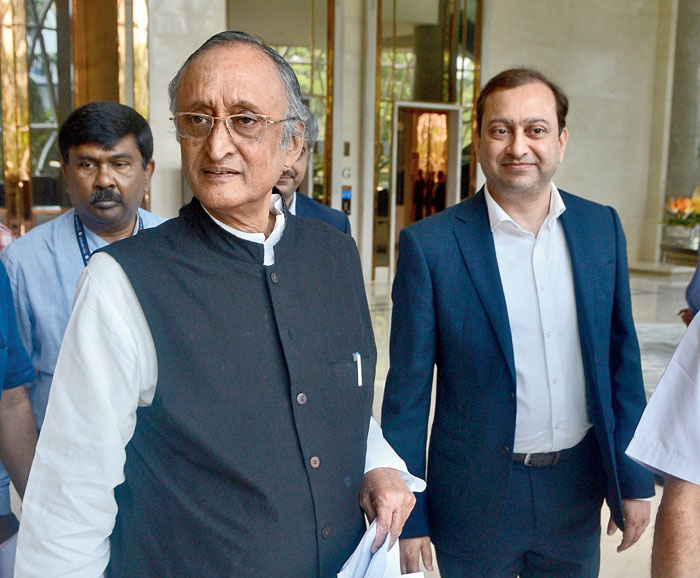Bengal finance minister Amit Mitra has demanded a thorough investigation to detect the ‘massive fraud’ under Goods & Services Tax (GST) and take action against ‘racketeers’, as India grapples with tax evasion under the new indirect tax regime.
In a letter written to Union finance minister Nirmala Sitharaman, Mitra urged to put in place ‘a robust reporting system’ to generate real time tax alerts on detection of any suspicious and fraudulent transaction going forward.
Drawing attention to a reply of Anurag Thakur, minister of state for finance, where he admitted that Rs 45,682 crore of tax fraud has been detected under GST since the rollout on July 1, 2017, Mitra said the new return system should be in place with invoice matching ‘without fail’.
“In fact, this massive fraud under GST is understated, as complete data of frauds under state GST (SFST) have not been factored in. If the detected and undetected cases of tax fraud of all states under SGST are compiled, then the tax evasion figure may cross Rs 1 lakh crore,” Mitra wrote in the letter.
The GST Council, the apex body comprising representatives of states and the Centre, is slated to meet on September 20 in Goa, where the issue of tax evasion may come up. A new return system is going to be in place from October 1 (for large tax payers) and January 2020 (for all tax payers).
Tax dodgers appear to be taking advantage of a lack of invoice matching in the system. Even though the leak proof system were to be in place initially, the IT backbone could not take the load of the gargantuan volume of transactions.
“The concept of invoice matching is the core of GST as there is a two-way flow of credit between the Centre and the state and between states. We could not even start invoice matching as GSTR-2 return, through which it was possible, has not been introduced.
“Despite not having an invoice matching facility, dealers were allowed to claim input tax credit (ITC). As there were no means to check the veracity and genuineness of the claimed GST, there are widespread tax frauds and hawala transactions,” Mitra wrote.
The Bengal finance minister, who was the chairman of the empowered committee of finance ministers on GST, has been a vocal critic of what he called a hurried and unplanned introduction of GST without creating a robust backend IT infrastructure.
In his letter to the finance minister on August 27, 2019, Mitra also highlighted a recent report of the Comptroller and Auditor General (CAG).
“The CAG in its report recently placed in the Lok Sabha has flagged the same issue that the existing GST system is vulnerable to fraudulent ITC claims. In its report, it has stated that invoice matching is the critical requirement that would yield the full benefits of the tax reform,” he wrote.
Expert view
Experts feel that while the rollout of GST, where several levies were subsumed to under one, was commendable, the government could have taken more time to introduce the IT-based system.
“We need to look at GST, the tax and GSTN, the IT backbone, separately. While the tax reform was the need of the hour, more precaution could have been taken before asking everyone to file everything online. A gradual transition to the IT-based system for such a massive country may have helped reduce the inconvenience, cost of compliance and fraud,” Santosh Dalvi, partner and deputy head of indirect taxes, KPMG, said.
Parag Mehta, partner at chartered accountant firm NA Shah Associates, cautioned about the new tax filing regime effective October 1.
“In the new forms that are being introduced, the sellers will upload their entire sales. Based on the reported sales, only the buyers will be allowed ITC. If their purchases are not reported, the buyer will be allowed to report the same to a particular percentage and claim ITC. This would ensure that all traders report their correct and complete sales,” Mehta said.
However, the point of concern would be that in case of defaults by sellers, the genuine buyers will be penalised by restricting their ITC on such unreported sales, he noted. Steps should be taken to penalise evaders and not a genuine businessman, he added.











